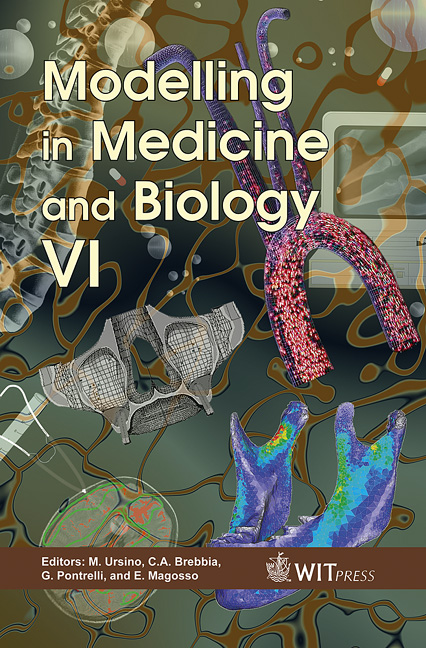Numerical Simulation Of Motor Neuron Excitability In A Transgenic Mouse Model Of Familial Amyotrophic Lateral Sclerosis
Price
Free (open access)
Transaction
Volume
8
Pages
8
Published
2005
Size
480 kb
Paper DOI
10.2495/BIO050221
Copyright
WIT Press
Author(s)
N. Marzocchi, S. Severi, M. Pieri, C. Zona & S. Cavalcanti
Abstract
Amyotrophic lateral sclerosis (ALS) is a neurodegenerative disease characterized by the selective degeneration of motor neurons. Mutations of the Cu,Zn superoxide dismutase (SOD1) account for 20% of the familial cases of ALS. Transgenic mice overexpressing the mutated human SOD1 enzyme develop phenotypic and pathological symptoms resembling ALS in humans. Previous studies showed that, in this transgenic model of ALS, expression of the human G93A-mutant SOD1 gene does not affect passive membrane properties, whereas it induces a different excitability with respect to control and SOD1 motor neurons. To investigate which modifications at the ionic current level can produce the observed phenomenon, we developed a numerical simulator of the electrical activity of mouse spinal motor neuron. The simulator was based on a mathematical model including a Hodgkin-Huxley (HH)-type parallel conductance membrane model and a lumped fluid compartment model accounting for the activity of a cytosolic calcium-binding buffer. The equations describing voltage-dependent fast sodium current (INa) were modified from a conventional Hodgkin-Huxley formulation, and the parameters were adjusted in order to fit experimental data from non-transgenic mouse motor neurons. We then introduced minimal changes to other model parameters in order to match available SOD1 current-clamp electrophysiological data. The model is able to reproduce AP waveform properties as well as the relation between firing frequency and injected current measured in SOD1 motor neurons. This model offers a powerful investigative tool, making it possible to identify the current modifications which could produce the observed effects on G93A motor neurons excitability. Keywords: biological system modeling, motor neuron, firing properties, Hodgkin-Huxley models, ALS.
Keywords
biological system modeling, motor neuron, firing properties, Hodgkin-Huxley models, ALS.





